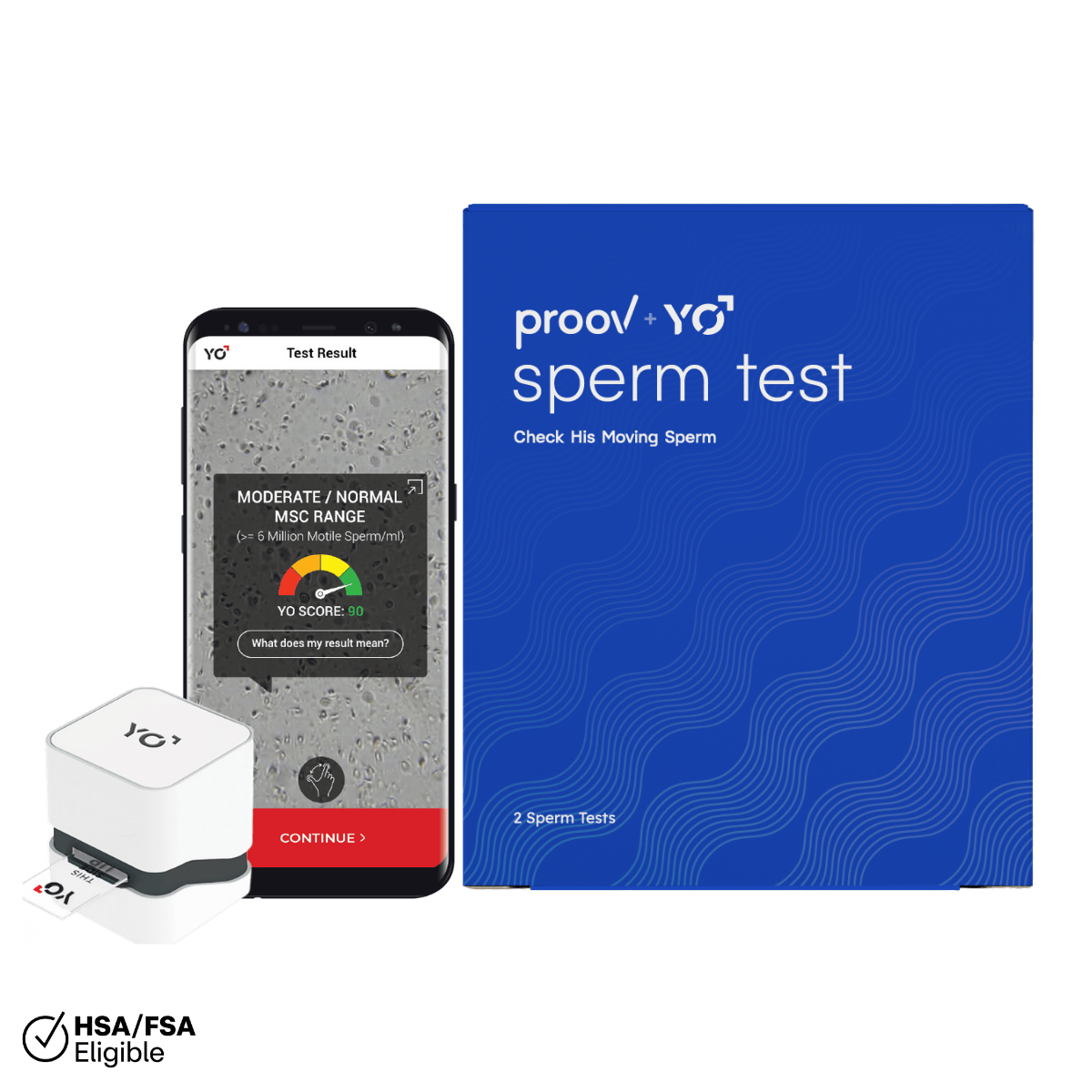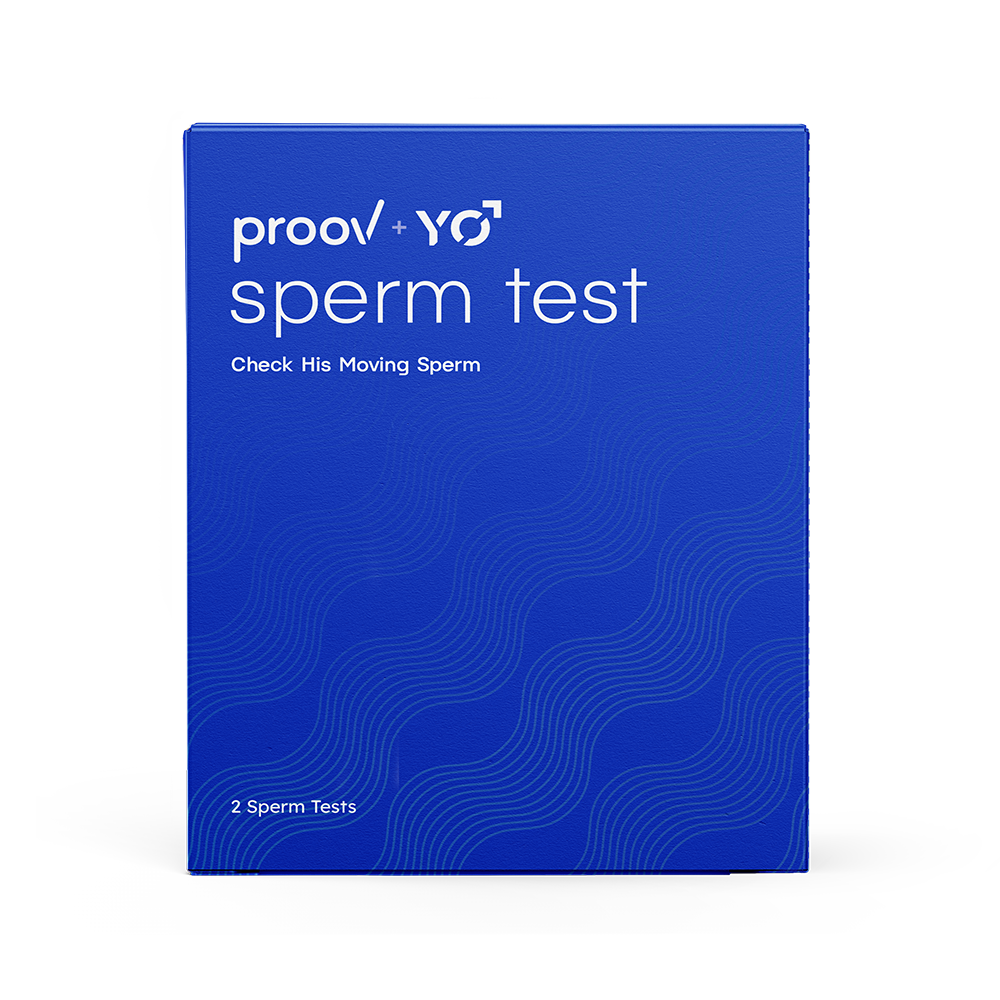Written by: Dr. Amy Beckley, PhD, Founder and Inventor of the Proov test — the first and only FDA-cleared test to confirm successful ovulation at home.
Written on 11/24/21
Our cycle hormones are so important. Not only do they impact our fertility, but also things like our mood, cognitive function, and bone density!
One of our favorite cycle hormones is progesterone. Like other hormones, progesterone levels fluctuate throughout your cycle. Better understanding these fluctuations during each phase and life stage can help you optimize your levels and fertility!
What is progesterone and why is it important?
Progesterone occurs naturally in our bodies. Along with estrogen it serves as one of the main sex hormones and helps regulate your cycles. Progesterone is essential for fertility and pregnancy, as it supports successful implantation and pregnancy.
After ovulation occurs, during the second half of your cycle, the empty follicle on the ovary from which the egg was released starts producing progesterone. Levels need to rise and remain elevated for the entire implantation window, since progesterone makes the uterine lining “sticky” enough so that an embryo can comfortably implant.
If progesterone production doesn’t reach a high enough level or drops too soon during the implantation window, the uterine lining may not be properly prepared for implantation. This means the lining may not be receptive of an embryo and may result in incomplete implantation or early miscarriage.
If you do conceive, the corpus luteum continues producing progesterone through the end of the first trimester, when the newly developed placenta takes over. You may have heard progesterone called the “pregnancy hormone” since it plays an enormous part in pregnancy.
Progesterone creates a healthy uterine environment in which the growing fetus can be comfortable and get all the essential nutrients it needs. Additionally, progesterone helps prevent preterm contractions, ensuring the pregnancy lasts a healthy length.
Studies show progesterone supplementation during pregnancy may help prevent premature birth. It serves as an elective treatment for premature birth caused by irritable uterus and incompetent cervix.
Last but not least, the benefits of progesterone extend outside of only fertility and pregnancy. It plays roles in cognitive function, skin elasticity and health, and bone health. Finally, studies show progesterone may help prevent uterine and breast cancer.
Progesterone Levels Throughout the Cycle
As we mentioned, progesterone levels fluctuate throughout our cycles. There are some parts when it should be low, and others when it should be elevated. Knowing the ideal levels throughout your cycle can help you better understand your own progesterone levels and what they mean.
Estrogen and progesterone work together to ensure you have a regular cycle. During the first half of your cycle, the ovary produces estrogen which thickens the uterine lining in preparation for pregnancy. You should experience elevated estrogen levels during the first half of your cycle.
At the same time, progesterone keeps a low profile. So,what progesterone level indicates ovulation? Ideally, serum (blood) progesterone levels before ovulation shouldn’t be higher than 1.5 ng/ml. This may seem low, but it represents a healthy level for that phase of your cycle.
After ovulation, estrogen levels drop and it’s progesterone’s turn to shine! The process of ovulation triggers the empty follicle from which the egg was released to start producing progesterone.
The empty follicle, now called the corpus luteum, should continue to produce progesterone throughout the luteal phase. While progesterone levels increase immediately after ovulation, they likely won’t reach an ideal level until day 7 past peak fertility, which is totally normal.
Once progesterone reaches this ideal level on day 7 past peak fertility, it needs to remain high throughout the entire implantation window. You may remember this is because progesterone preps the uterine lining for implantation.
We like to see elevated progesterone levels on days 7-10 past peak fertility (i.e. the implantation window) in order to allow for the best possible chance at implantation and pregnancy. Without enough progesterone during all 4 days of the implantation window, the uterus may not be ready for implantation and it can be more difficult for successful implantation and pregnancy to occur.
It is widely accepted that an average progesterone level of at least 10 ng/ml during the luteal phase leads to the best possible chance at pregnancy. This correlates to an average of 5 ug/ml of PdG (marker of progesterone) in urine. Note that blood progesterone levels can fluctuate a lot so a single blood draw may not produce an exact match.
Progesterone when TTC is so important that studies show implantation failure may be responsible for up to 75% of early miscarriages. The good news is that other studies show progesterone supplementation during the luteal phase may prevent up to 8,500 miscarriages in the United Kingdom alone, especially in those who have previously experienced loss or bleeding during early pregnancy.
If conception doesn’t occur, progesterone levels drop at the end of the luteal phase, allowing for your period and a new cycle to start.

Progesterone when TTC is so important that studies show implantation failure may be responsible for up to 75% of early miscarriages.
Progesterone Levels During Pregnancy
However, if you do conceive, elevated progesterone remains critical. As we saw from the above studies and information, progesterone levels truly do matter during pregnancy!
While there are many averages for optimal progesterone levels during pregnancy, the American Pregnancy Association provides these commonly used guidelines:
- Mid luteal phase: 1-28 ng/ml (Remember that you want the average to be over 10!)
- First trimester: 9-47 ng/ml
- Second trimester: 17-146 ng/ml
- Third trimester: 49-300 ng/ml
Please keep in mind that every pregnancy is different and progesterone levels play a small — albeit very important — role in the overall health of your pregnancy. If you have concerns about the health of your pregnancy, we absolutely recommend consulting your doctor.
Additionally, some pregnancies start with low progesterone levels, but production increases once the placenta takes over. Others may require progesterone supplementation to ensure healthy levels. It really is not a one-size-fits-all and we encourage you to consult your doctor for further action if you have any concerns.
How do I measure my progesterone levels?
If you are pregnant, we recommend consulting your doctor for progesterone testing.
If you are trying to conceive, there are two main ways to measure progesterone when trying to conceive:
- A one-time serum progesterone blood test
- A urine-based PdG (pregnanediol glucuronide) test, which is a marker of progesterone
While blood tests have been the gold standard, they only show progesterone levels at one point in time. As we’ve seen, levels actually need to remain elevated for the entire implantation window to allow for the best possible chance at pregnancy — information you cannot receive from a single blood test.
Instead, you’d need to draw blood several days in a row to find your average levels. Ouch!
That’s where PdG testing comes in. Since PdG appears in urine and shows an average of all progesterone levels from the previous day, you can test across the entire implantation window to get the full picture on your levels.

Proov Confirm PdG tests are the first and only FDA cleared PdG test to check for successful ovulation at home.
Proov Confirm PdG tests are the first and only FDA cleared PdG test to check for successful ovulation at home. With our tests, you can confirm ovulation occurred and that it was high quality, meaning healthy PdG levels for long enough.
In fact, the patented Proov PdG testing protocol recommends testing daily on days 7-10 past peak fertility (the implantation window) to confirm successful ovulation did in fact occur. Additionally, when paired with the Proov Insight app you can get numeric results, info on what they mean, and personalized action plans to help you move forward on your fertility journey.
Progesterone is so important! The more you know about your hormones, the better set up for success you can be.













